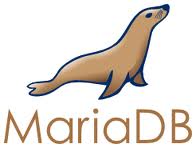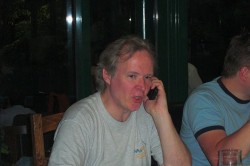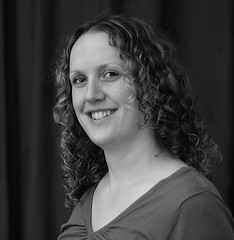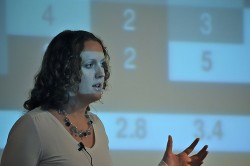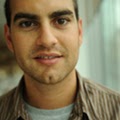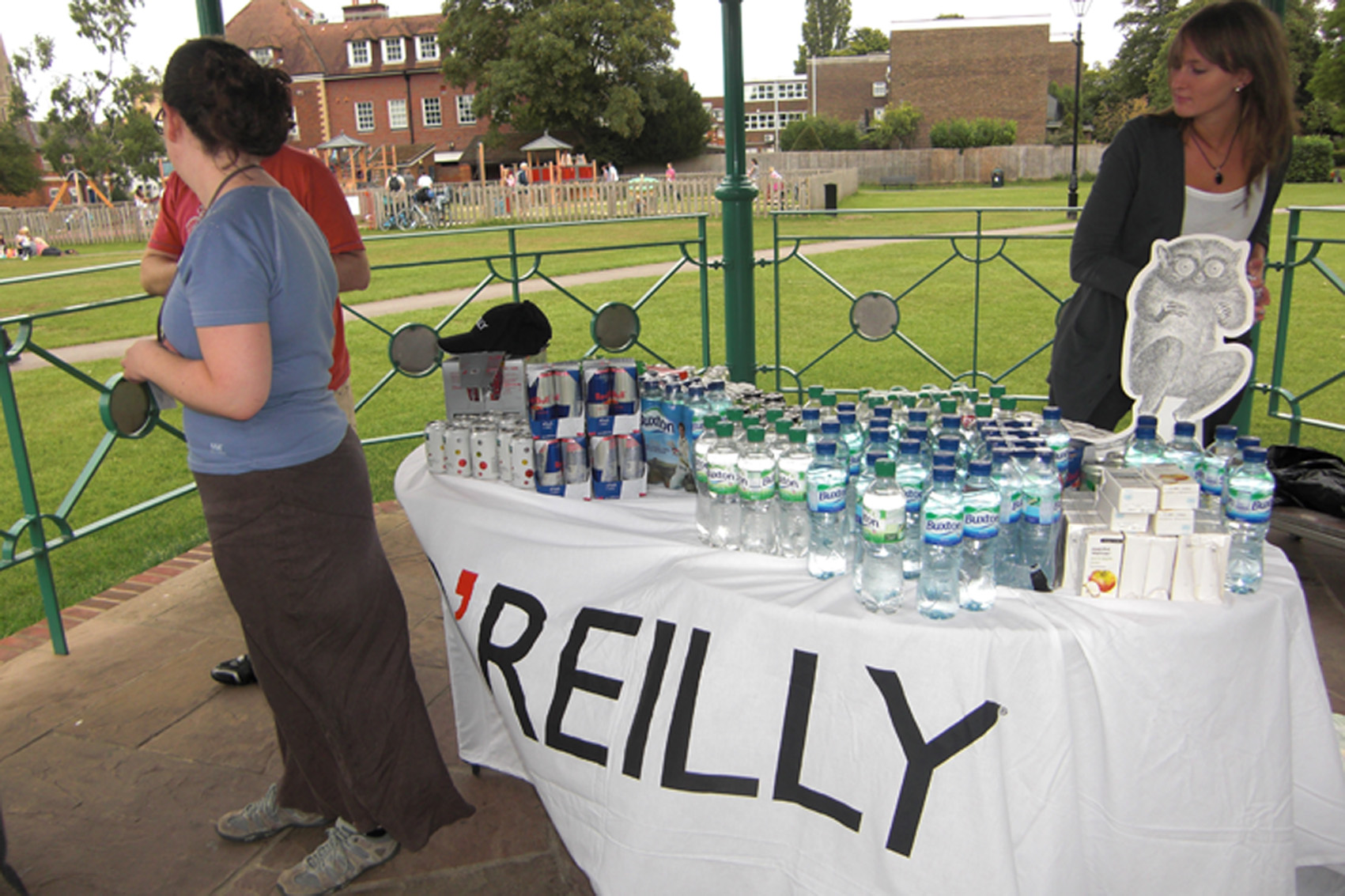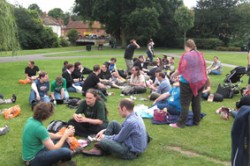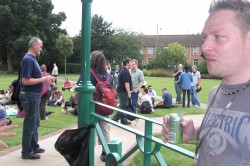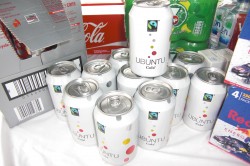Nicolas de Loof from BreizhJUG, the Java User Group from Rennes, France, talks about Jenkins and Jenkins User Meetings.
 Jenkins (aka Hudson) is the de-facto standard for continuous integration in the java world, but it is also an active, growing community of plug-in developers. Thanks to its extensible design and very open contribution model, many developers have contributed value-added plug-ins, so that nowadays Jenkins can be used for a large set of use cases. Including continuous integration for ruby, python, .Net, and more , but, beyond languages, many other processes. Some use it for QA and release management, some use it to trigger batch Business Intelligence processes, or as an infrastructure scheduling tool.
Jenkins (aka Hudson) is the de-facto standard for continuous integration in the java world, but it is also an active, growing community of plug-in developers. Thanks to its extensible design and very open contribution model, many developers have contributed value-added plug-ins, so that nowadays Jenkins can be used for a large set of use cases. Including continuous integration for ruby, python, .Net, and more , but, beyond languages, many other processes. Some use it for QA and release management, some use it to trigger batch Business Intelligence processes, or as an infrastructure scheduling tool.
 The first Jenkins User Conference (JUC) was held on October 2nd in San Francisco, bringing together the fast evolving community, to look at current usage, the future and brainstorming new uses to explore. Kohsuke Kawaguchi, the keynote speaker, is the creator of Hudson and writer of the majority of Hudson core single-handedly.
The first Jenkins User Conference (JUC) was held on October 2nd in San Francisco, bringing together the fast evolving community, to look at current usage, the future and brainstorming new uses to explore. Kohsuke Kawaguchi, the keynote speaker, is the creator of Hudson and writer of the majority of Hudson core single-handedly.
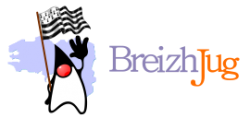 Many local meetings are taking place internationally and as the local Java User Group Leader, I organized one of these “Jenkins User Meetings” last evening in Rennes, France. During the 2 hour meeting, users and contributors talked about user cases, feedback or technical tips:
Many local meetings are taking place internationally and as the local Java User Group Leader, I organized one of these “Jenkins User Meetings” last evening in Rennes, France. During the 2 hour meeting, users and contributors talked about user cases, feedback or technical tips:
* JavaScript web application continuous integration with Selenium web U.I. testing (Laurent Roger)
* Continuous delivery with Build Pipelines and operations workflows (Sébastien Brousse)
* “DogFood” use of Jenkins at CloudBees (Nicolas De loof)
* Live development of a Jenkins plug-in from scratch (Gregory Boissinot)
Such events are a nice place to discover advanced uses of Jenkins and more generally about application lifecycle automation, and also to meet with contributors. Debates on functionality often bring attendees together to create a new plug-ins together, with the community valuing new contributions. If there is no such event near you, just create one! You would be surprised to know there are some advanced Jenkins users living in your neighbourhood, and many folks with nice experiences to share. Long live Jenkins!
 Last week, I went to the Open Source Developers Conference (OSDC) that is bridging the gap between the different communities and aim to bring together all IT developers. The conference was held in Paris which is still one one of the most attractive cities I know – one of the world’s leading business and cultural centres – well known for fashion, arts etc. But what I prefer is the buzz – it is so alive! It seems like a 24/7 city that keeps running.
Last week, I went to the Open Source Developers Conference (OSDC) that is bridging the gap between the different communities and aim to bring together all IT developers. The conference was held in Paris which is still one one of the most attractive cities I know – one of the world’s leading business and cultural centres – well known for fashion, arts etc. But what I prefer is the buzz – it is so alive! It seems like a 24/7 city that keeps running.
I keep being told that the French, mainly the Parisians are so rude and unfriendly to foreigners – I definitely disagree with that statement. Once again, I got caught trying to find my way to the George V Eurosite – map in hand, looking for street names, trying to find out where I was and where I should go. For the third time, somebody came to my rescue without prompting. Ex-pat French is not written on my forehead and my French accent is as bad as my English one. So why are they nice to me and so rude to you?
 I am sure you are not reading this to discuss French politeness – so I will talk about OSDC which is the reason for my stay in Paris. This year OSDC was part of Open World Forum. The list of sponsors for the forum was impressive. It included Bearstech, Red Hat, Suse, Microsoft, Oracle to name only a few.
I am sure you are not reading this to discuss French politeness – so I will talk about OSDC which is the reason for my stay in Paris. This year OSDC was part of Open World Forum. The list of sponsors for the forum was impressive. It included Bearstech, Red Hat, Suse, Microsoft, Oracle to name only a few.
The Open Source Developers Conference (OSDC) aims to be a place for meetings and exchanges between developers from different communities, which too often ignore or distrust each other. The goal is to go beyond trolls and see what they can learn from each other.
This conference allowed me to meet developers in Python, Perl, Ruby etc. under one roof. Some of the talks seemed very interesting or so I was told and all the buzz words were used – QR, MySQL, Drupal, MariaDB, Redis and of course the above mentioned languages.
One of the talks that seemed to fit everybody is The state of the Acmeism by Ingy döt Net. Acmeism is the commitment to furthering all good languages simultaneously. I have seen Ingy writing at the same time in Python and Perl – how did he do that? I don’t have a clue as I was rather busy eating a choucroute at the time.
Two talks were given by François Perrad on Lua.
The only time I heard about Lua was in an interview of the authors Luiz Henrique de Figueiredo and Roberto Ierusalimschy in our Masterminds of Programming.
After some apprehension on having my book table set far away from the OSDC rooms, first in the bar and then opposite the “makers” room (more about the “makers” room in a forthcoming post), I will admit complete success and I hope to be there next year.
 I have only one regret, tradition among the perl mongueurs is to drink together a glass of Chartreuse brought by BooK all the way from Lyon. Unfortunately, I had to run for my train and missed it. Yet another reason to be there next year!
I have only one regret, tradition among the perl mongueurs is to drink together a glass of Chartreuse brought by BooK all the way from Lyon. Unfortunately, I had to run for my train and missed it. Yet another reason to be there next year!
A couple of years ago, I kept noticing that people I’d met at different events were landing really impressive jobs. Those “how do you get thatjob?” jobs. I also noticed a definite trend: the people with the unspeakably cool jobs were also people who had struck me as high fliers, who led open source projects, gave talks at conferences, whom I knew as authors or bloggers, those kind of people.
Coincidence?
We often talk about getting involved in open source in terms of “contributing”, as if this is a one-way arrangement and as contributors, all we do is give to the project, getting nothing in return. I say “nonsense” (that’s the paraphrased version, this isn’t my blog!). Getting involved in open source is absolutely the best thing you can do for your career. Open source can be a huge leg-up on the career ladder, and getting involved in open source is the best thing you can do … for YOU.
Getting open source on your CV is guaranteed to benefit your career development about as much as having a twitter account is guaranteed to improve a company’s sales. Which is to say, probably, but not measurably. You certainly can gain work experience but doing open source, on top of your day job, when your heart isn’t in it, is a bit of a hard way to do it. A wise man named Wez Furlong wrote “Don’t just ‘do open source’ because it makes your resume look good, do it because you find it interesting”. Wez himself is the product of dabbling in open source and getting job offers as a result; he’s a core contributor to PHP, Chief Software Architect at Message Systems, and has personal projects so geeky that I understand about one word in two when he explains them.
In addition to the above, Wez is right – learning anything by doing stuff you’re interested in is the most stimulating, most memorable way to learn. You’re doing something you want to be doing, and you can use those new skills in your professional career later on (either in the job you have now or one that you hope to get), that’s quite a prize for spending your free time with open source. I don’t believe, and I don’t believe many employers believe, that having skills you’ve only done on a voluntary basis undermines the value or validity of those skills. If you can do something, and you want a job that needs those, then SAY YOU CAN DO IT.
This article is usually given as a talk, and the very first time I gave the talk, someone from the audience came up to me afterwards and told me that while he was sitting in my talk, he’d received a job offer for what would become his very first programming job. He had no prior experience but while studying he had built some WordPress plugins and contributed to the Drupal project; his employers had been impressed by his skills and his willingness to self-start, and made him the job offer.
There are many ways to get involved in open source software, but the most obvious way is to write code. Open source can deliver some very valuable experiences when you get involved with it at a technical level. When you work in an enterprise setting, there are people to do systems administration, database administration, infrastructure setup, and so on. When you get into open source, you will check the code out of a repository, and you’re responsible for getting the rest of the stack up and working.
I’m a PHP developer, but I’d come into that having done a few other things, and I had a PHP development job in a large company that had all of the above roles in place. I moved to be a development lead at a creative agency, a much smaller company. Purely because I’d been tinkering with open source PHP apps, I had just enough (thick skin of teeth enough!) skills to keep that job long enough to actually figure out how to do the job. The day their server blew up and I realised I was expected to fix it was the day that I drew on the many experiences of trashing my home installations and having to recover those as well, and rebuilt their server as if I knew what I was doing (at least, I hope I looked like I did!).
When it comes to moving jobs, some places will ask for a portfolio of your work. This is fine if you make things that people can see – but I’m a server-side developer and a lot of my work is “glue” code that goes inside the guts of a particular organisation’s servers, which means this can get quite tricky. Being able to point to a github account or otherwise cite examples of things you’ve been doing in open source, where potential employers can obviously come and see that source, is a great way to be able to provide that evidence they are looking for (github actually has a feature for this – check out http://resume.github.com).
Getting involed in a project can seem daunting but the reality is, most open source projects are populated entirely by people who are delighted to meet someone who is as interested in their project as they are! I’ve been giving this talk since before I made a single code contribution to any open source project, now I run one – so yes, it’s easy to get involved.
It’s a cliche that open source projects ask new members to fix bugs and it can seem like they’re just leaving the lowest tasks to the lowest members of the community. In fact, this isn’t the case at all. Very early in my career I worked on a technical helpdesk and I quickly learned that a good helpdesk developer must understand all aspects of the system in front of them (because the bugs never show up in the parts of the system you already know about!) to a higher degree than the developer who originally built the system, and probably specialised in that aspect. By the same token, fixing bugs on an open source project will give you great visibility of all kinds of different bits of the project, and let you see what goes where, learn to debug different bits of it, and so on. Even if you’re just sort of browsing the list and trying to replicate a few things, adding additional information, it helps.
Interacting with users and other devs on the forums and channels is a key skill; I’m sure I’m not the only person who thinks that most development project leads shouldn’t be let loose with ordinary users! The people who are moderators and operators on those forums and channels are rockstars. It is a hard job, and you might think it’s not really technical enough to advance your career, but as the old adage goes, it’s not what you know – it’s who you know. I recently had the pleasure to meet someone who had corresponded with me when I first blogged about this topic. She was a mod on the Ubuntu forums in her country, got invited to attend a related event, and while she was there she landed a new job working on migrating a company’s internal systems over to open source platforms. This is a shining example of the kind of thing I mean – and to meet her at OggCamp this summer, another open source event, was fantastic!
On the forums, a comprehensive answer to a common problem becomes the de facto documentation for that particular topic. From there, it is a small step to contributing documentation to a project. Many technical folk seem averse to documentation but to me it is simply asynchronous teaching. I would teach you but since we won’t be in the same place at the same time for me to do that, let me write it down and then you, and many other people, can get the same lesson.
 I feel the same way about blogging, mine is at http://lornajane.net and has been active since 2006 and I’ve been blogging a few times a week for a number of years now. It’s the same attitude – if you asked me about this thing then I’d tell you. But I don’t know you and you don’t know me, and even if you do, you maybe don’t know I could help you. So to get around all that being-at-the-same-event-and-asking-the-right-questions-of-the-right-person-in-the-bar rigamarole, I simply blog the thing that I know. This way, you can grab it when you need it, and I can as well when I’ve forgotten in three weeks’ time that I’ve already solved this once!
I feel the same way about blogging, mine is at http://lornajane.net and has been active since 2006 and I’ve been blogging a few times a week for a number of years now. It’s the same attitude – if you asked me about this thing then I’d tell you. But I don’t know you and you don’t know me, and even if you do, you maybe don’t know I could help you. So to get around all that being-at-the-same-event-and-asking-the-right-questions-of-the-right-person-in-the-bar rigamarole, I simply blog the thing that I know. This way, you can grab it when you need it, and I can as well when I’ve forgotten in three weeks’ time that I’ve already solved this once!
Excuses for not blogging are almost entirely invalid. “My blog theme isn’t finished yet”, “I don’t know anything” or “I don’t have time” are all entirely non-watertight in my opinion. Everyone knows something I don’t know, and will be grateful to find on google the day that I need it! And everyone has time to write 200 words about something … this is my secret to blogging so often, if you read my site, there are not many long posts. I simply open the blog software, empty my brain (there isn’t too much in there), and then press “publish”, and the whole process takes as long as writing an email. My habit of doing this has certainly got me noticed as a writer, and in fact I’m now an author, writing for a number of outlets and having finished my first book (with co-authors, not a whole thing on my own!), partly making a living from writing about technology.
I mentioned already that this article is the written version of a talk that I give, so I’m usually on a conference stage when I get to share these stories (and some less repeatable ones!), and speaking is a great way of sharing. It doesn’t matter where you start, although I’d recommend taking your first speaking steps for an audience that hasn’t paid for the privilege of seeing you speak. As a speaker, I go places and meet people and learn things that I simply wouldn’t have been able to do any other way. I was giving exactly this talk at OggCamp when I ran into Josette, whom I know well from so many other events, and she asked me to write for this site.
Meeting so many people and being at so many events means I know a lot of people, particularly speakers in my niche industry. I also help organise a community-run PHP conference in my area – PHPNW in Manchester, UK. I’ve been doing that since I was working for my previous employer, Ibuildings, and one year they asked me if I would be the host of their big conference, the Dutch PHP Conference in Amsterdam. This is a pretty big deal, it’s a major event on the European PHP calendar, and, well, I’m a developer! In fact I absolutely loved curating and hosting the event, and the opportunity only came my way because of my extra-curricular activities in those directions.
Organising events is one of the most stressful things I have done but it has taught me so many skills! I now run my own business and those skills of being able to talk about money, organise people and other logistics, publicise an event, and so on, are absolutely vital to have. I had no idea that’s what I was learning at the time though, I thought I was just bringing people together to talk about technology.
Whether you’re organising an event, a user group, running an open source project, or getting involved with any of the above, you will probably be working in a team. It wasn’t until I read “The Art of Community” that I really understood how much interchange there is between my work world and my community one. The skills I learn in one place, I bring to the other. The patterns that emerge in one place and learn to handle and respond to, will often appear in another. And politics are the same everywhere! Dealing with sticky situations, mediating with people, finding the balance between paying work and voluntary work … all those skills are absolutely applicable in so many areas of life and work.
Before I finish, a final word about leadership. Leading is really not about being “in charge”, although having the job title to go with it can sometimes make it easier to get things done. Leadership is about believing in something and getting people to join efforts and make things happen. My mentor is a wise woman named Ligaya, and she told me a long time ago that “Forgiveness is easier to obtain than permission”. She’s part of the PHPWomen group, and I should ask her if she regretted saying that! This attitude hasn’t always been popular at work, but now I’m a consultant, I have to be a leader in all that I do. I think communities in general are much better at recognising effort and achievement than many employers. For those in a job getting negative or no feedback on their work, open source involvement will bring a blast of lively interaction, since everyone gets to have an opinion!
Building open source software is about taking what’s available and building on top of that to create something better, and open source career development is exactly the same thing. There are no guarantees that you will be getting a new job, a raise, or more challenges at work, but I definitely see a trend towards a fast-track for those that do. Giving yourself the chance to get involved in something new, learn new skills, meet new people, is unlikely to be wasted. Whether you will start a blog, speak at an event, contribute documentation or write code, I challenge you to step up and get involved. Not for an improved CV, but for an improved you.
 This post was created by Lorna Jane Mitchell, a freelance consultant, developer, trainer, writer or evangelist. She is co-author of PHP Master soon to be published by Sitepoint.
This post was created by Lorna Jane Mitchell, a freelance consultant, developer, trainer, writer or evangelist. She is co-author of PHP Master soon to be published by Sitepoint.
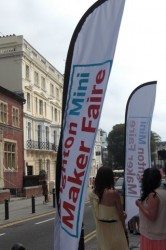 At the Brighton Dome on Saturday 3rd September we met our old friends and made a few new ones. I have never seen the rooms of the Dome so packed. I read that over 5000 people came to visit the Brighton Mini Maker Faire. A huge success!
At the Brighton Dome on Saturday 3rd September we met our old friends and made a few new ones. I have never seen the rooms of the Dome so packed. I read that over 5000 people came to visit the Brighton Mini Maker Faire. A huge success!
Unfortunately I had only a couple of hours before going back home (I wished I had planned my weekend a little better) So I hurried up to say hello to some of our old friends met during Maker Faire Newcastle:
Iain Sharp and his Vibrati Punk Console – Should you be interested in reading more about the Vibrati Punk Console and Ian read our previous interview.
John Dingley: remote controlled one-wheeled skateboard.
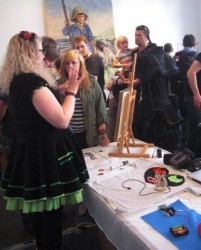 Rain Ashford‘s Lilypad Musical Craft – you can read more about Rain and her work on Wearable Technology here.
Rain Ashford‘s Lilypad Musical Craft – you can read more about Rain and her work on Wearable Technology here.
I am sure I missed a few but we will meet again at another event.
After a very brief tour, I ended up in the Craft Cavern. Oh joy! I can try a few things –
I have never been attracted by mosaic, until I met Christine Walker and her mosaic panels – just brilliant. With Christine I discovered that I am all fingers and thumbs… Tiling the bathroom has got no relation with her work.

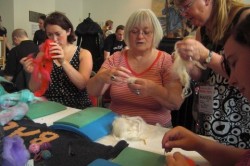
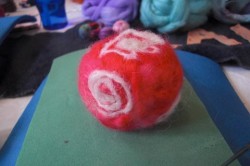 Realising that mosaic was not for me (or at least not yet), I visited Jay Kendall from Knitwit Originals – a huge pumpkin dominated the table. I decided to try my luck at making a small ball – success, I managed to keep my fingers safe and the ball is almost round. I just need to put it in the washing machine for a hot wash, apparently it will shrink and become very “felty”.
Realising that mosaic was not for me (or at least not yet), I visited Jay Kendall from Knitwit Originals – a huge pumpkin dominated the table. I decided to try my luck at making a small ball – success, I managed to keep my fingers safe and the ball is almost round. I just need to put it in the washing machine for a hot wash, apparently it will shrink and become very “felty”.
 Time to visit Emily Wright, from Cuttlefishlove Kanzashi, creator of kanzashi clips and brooches. It is Emily’s first workshop. I was given some squares of material, some glue – no secrets in creating those lovely pieces you just need patience, skill, an eye for colour etc. and not minding getting your fingers glued together and the material. As you can see from my end product, I will need a lot of practice.
Time to visit Emily Wright, from Cuttlefishlove Kanzashi, creator of kanzashi clips and brooches. It is Emily’s first workshop. I was given some squares of material, some glue – no secrets in creating those lovely pieces you just need patience, skill, an eye for colour etc. and not minding getting your fingers glued together and the material. As you can see from my end product, I will need a lot of practice.
 There was a stand that unfortunately I could not come close to (too manyyoungsters and not so young creating bees in felt) – this is Eve Maria Kelly’s felting stand. She creates wonderful pieces such as the young shepperd.
There was a stand that unfortunately I could not come close to (too manyyoungsters and not so young creating bees in felt) – this is Eve Maria Kelly’s felting stand. She creates wonderful pieces such as the young shepperd.
At the next event, I will definitely spend more time meeting all the makers who do not mind teaching, talking about their crafts with such enthusiasm. Also I am sure there are a lot more things for me to learn but in the meantime… I will keep the day job.
 In Brighton for d-Construct – the dream conference for any organizer – all the 800 tickets were sold within 7 hours to people coming from all over Europe. Brilliant!
In Brighton for d-Construct – the dream conference for any organizer – all the 800 tickets were sold within 7 hours to people coming from all over Europe. Brilliant!
Some of the talks seem excellent –
. Don Norman on “Emotional Design for the World Objects”
. Kelly Goto on “Beyond Usability: Mapping Emotion to experience”
I think there is a theme developing there! And am i right saying that Gamification is part of the theme. If this is correct our “Gamification by Design” got released just on time. I heard a lot of comments about the subject from wonderful to comments I should not repeat here.
Other talks included:
Letting Go: Bryan Rieger and Stephanie Rieger
What is the Shape of the Future Book? Craig Mod (wish I could have gone to this one!)
Oh God, It’s Full of Stars: Frank Chimero
The Transformers: Kars Alfrink
Pocket Scale: Matthew Sheret
Sponsors:
 I had a very short chat with the people from Ubelly who told me that the aim of Ubelly was to ensure that Open Source applications are easily workable in the Microsoft environment – ie Drupal, Joomla, WordPress etc. but I cannot find anything about that in the website which says “Ubelly is the unofficial official Microsoft blog for developers who love the web. We cover the events you want to go to, write about the things you want to read about and care about the things you care about.”
I had a very short chat with the people from Ubelly who told me that the aim of Ubelly was to ensure that Open Source applications are easily workable in the Microsoft environment – ie Drupal, Joomla, WordPress etc. but I cannot find anything about that in the website which says “Ubelly is the unofficial official Microsoft blog for developers who love the web. We cover the events you want to go to, write about the things you want to read about and care about the things you care about.”
OK, got it! It seems that with Webmatrix, you can use/download Joomla, WordPress etc. easily onto the Microsoft platform. I will need to ask my sys admin if that was the route taken for downloading WordPress on this machine!
Other sponsors included
vzaar – The Professional Video Platform
Fontdeck – Web typography
and now for some fun
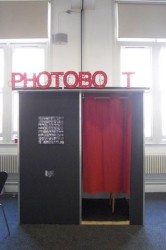 Next to my table was Litebooth: Photobot Loves You – The first robot photo booth. Should you wish to see some of the pictures from d-Construct, go to. I am hoping to post a little longer about this subject in the not too distant future.
Next to my table was Litebooth: Photobot Loves You – The first robot photo booth. Should you wish to see some of the pictures from d-Construct, go to. I am hoping to post a little longer about this subject in the not too distant future.
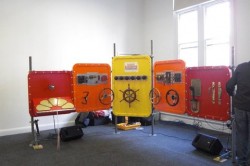 and only a few yards away The Subsonic Submarine Sound Playground who also appeared at the Brighton Mini Maker Faire the next day. But more about that in my next post.
and only a few yards away The Subsonic Submarine Sound Playground who also appeared at the Brighton Mini Maker Faire the next day. But more about that in my next post.
![]() Interested in d-Construct? Make sure next year, you are fast on the register button!
Interested in d-Construct? Make sure next year, you are fast on the register button!
As I am sure you are aware, we just had a long weekend in the UK. Did not go to work on Monday – so my family decided to go and visit the UK Wolf Conservation Trust in Beenham, Berkshire. Monday was Open Day and 1000s of people seem to have join us which meant it was a little difficult to see the animals but toward the end of our visit we managed to get some good views.
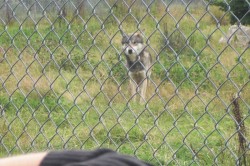
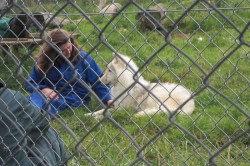
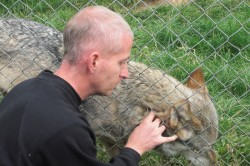 Why did I feel so unconfortable even disappointed?
Why did I feel so unconfortable even disappointed?
- the pens – large enough but still prisons with high fences
- 2/3 wolves per pen – I always thought that wolves live in large packs –
- the relationship between the keepers and the wolves – I felt these beautiful animals were made to behave as pet dogs – they came to be fed little morsels handed by the keeper, came for a tickle and a cuddle.
- it feels that these noble creatures are being used once again to make us feel better as saviours of the endangered species.
I am not sure I agree with the aim of the Trust as the money collected in the UK is sent out to other countries for the rehabilitation of the wolves. Why not spend it to rehabilitate the wolves in the UK? I am sure the hunters would hate wolves being reinstated as they might damage the grouse and deer population – so no wolves in the UK for the foreseable future.
 O’Reilly use a wolf too on the cover of Mastering Algorithms with Perl – a beautiful illustration by Lorrie LeJeune. There you will find a lot of information on our friend the Canis Lupus.
O’Reilly use a wolf too on the cover of Mastering Algorithms with Perl – a beautiful illustration by Lorrie LeJeune. There you will find a lot of information on our friend the Canis Lupus.
Droidcon London 2011 is Europe’s largest conference that exclusively covers Android development and applications. The conference will take place in London on 6th-7th October 2011.
Droidcon London 2011 has grown tremendously since last year, in line with the exponential interest in the Android platform. This year, upward of 600 Android enthusiasts will rub shoulders with the premier experts in the field to dig into every aspect of Android and its ever-growing ecosystem. High on the agenda this time around are Android for the Tablet, Android in the Enterprise, Android for Games, Android for business, Augmented Reality, multi-mobile and a whole lot more.
The first day will be community led with a full-day Barcamp and Democamp. The second day will be conference day, with presentations from some of the world’s foremost Android experts, including:
Two Google Developer Advocates for Android in Richard Hyndman and Nick Butcher
CommonsWare’s Mark Murphy (author of the Busy Coder’s Guide to Android Development)
Mustafa Isik aka CodeSurgeon and
Yosi Taguri (programmer on the fantastic game, Ahhh-Pah) with many more top class speakers still to be announced.
You can register via the Droidcon London 2011 site.
Follow Droidcon London 2011 –
Twitter: @DroidconUK tags: #droidconUK #droidcon or on Facebook
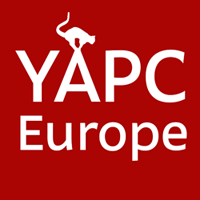 After a very bad start (difficulties in getting to the airport, delayed flight etc.) I made it to Riga for the 12th YAPC:: Europe. A few weeks ago you read Dave Cross’ overview, now you can read my resume. First what is Perl? According to Wikipedia: “Perl is a high-level, general-purpose, interpreted, dynamic programming language…..” but I prefer the other description “Perl is nicknamed “the Swiss Army chainsaw of programming languages” due to its flexibility and power.”
After a very bad start (difficulties in getting to the airport, delayed flight etc.) I made it to Riga for the 12th YAPC:: Europe. A few weeks ago you read Dave Cross’ overview, now you can read my resume. First what is Perl? According to Wikipedia: “Perl is a high-level, general-purpose, interpreted, dynamic programming language…..” but I prefer the other description “Perl is nicknamed “the Swiss Army chainsaw of programming languages” due to its flexibility and power.”
As I am sure you are aware YAPC::Europe stands for Yet Another Perl Conference in Europe but please do not ask me why there is a double colon I do not have a clue. Will need to ask a Perl person. I was very happy to be invited once again to this meeting – it is nice to renew contact with some old friends. I will name some of the key people who came to Riga – sorry guys if you are not named does not mean that I forgot you – it would be just too boring to list everybody.
 Larry and Gloria Wall – Larry founded Perl in 1987 – yes perl is almost 24 years old and there is still a lot of life in it. Larry is now working on Perl 6 which appears to be the longest gestation around but I am told that it is possible to use Perl 6 now. Gloria is for ever supporting him – I have the feeling that no Gloria no Larry!
Larry and Gloria Wall – Larry founded Perl in 1987 – yes perl is almost 24 years old and there is still a lot of life in it. Larry is now working on Perl 6 which appears to be the longest gestation around but I am told that it is possible to use Perl 6 now. Gloria is for ever supporting him – I have the feeling that no Gloria no Larry!
brian d foy who started the Perl Mongers or as we say in French les mongueurs de Perl. Brian is also the author of several books including the 6th edition of Learning Perl which has just been published and founder of the White Camel.
 Damian Conway – all the way from Australia, still one of the funniest speakers around but also author of several books including Perl Best Practices, Perl Hacks. Damian is also the tireless trainer from Thoughtstream and maybe mostly known for his contributions to CPAN and his work on Perl 6.
Damian Conway – all the way from Australia, still one of the funniest speakers around but also author of several books including Perl Best Practices, Perl Hacks. Damian is also the tireless trainer from Thoughtstream and maybe mostly known for his contributions to CPAN and his work on Perl 6.
 Dave Cross, founder and chair of the London pm for a long time, author of two books including The Perl Template Toolkit. For the last 3 years Dave has given some training at YAPC and this year was no exception. If my maths are correct that makes it 4 years of training – not bad Dave – I am sure you can do better.
Dave Cross, founder and chair of the London pm for a long time, author of two books including The Perl Template Toolkit. For the last 3 years Dave has given some training at YAPC and this year was no exception. If my maths are correct that makes it 4 years of training – not bad Dave – I am sure you can do better.
Jesse Vincent, author of RT Essentials, lots of CPAN Modules etc. Last time I talked about Perl to Jesse, about a year ago, he told me that he was in charge of the development of Perl 5. I don’t know if he still the coordinator but I have to admit that new releases of Perl 5 are coming fast.
Mark Keating who, I believe, is now in charge of marketing for the Perl Foundation or is it only for the European side of it – I am not sure but Mark said that he would write a post for this blog to let us know what he is up to. As well as being MD for Shadowcat Ltd, Mark also singly organise the London Perl Workshop.
Matt Trout, Technical Director of Shadowcat, Catalyst core team member, DBIx::Class project founder and author of The Definitive Guide to Catalyst.
Philippe Bruhat – key person among the French and International Community, translator of perl books and winner of the White Camel two years ago.
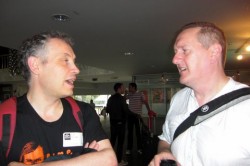 Brian and Sam McCauley – I am not sure what is the involvement of Brian with Perl but I would like to thank both Brian and Sam for being so good to me when my luggage was lost by Air Baltic – Brian lent me a plugboard so that I could recharge my phone etc. and Sam offered to lend me some clothes. It was very kind and very much appreciated. Thank you guys.
Brian and Sam McCauley – I am not sure what is the involvement of Brian with Perl but I would like to thank both Brian and Sam for being so good to me when my luggage was lost by Air Baltic – Brian lent me a plugboard so that I could recharge my phone etc. and Sam offered to lend me some clothes. It was very kind and very much appreciated. Thank you guys.
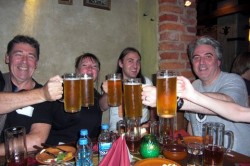 Andrei Shitov who organized YAPC remotely. Andrei was the head of the Moscow pm but now moved to Amsterdam to work for booking.com – the online hotel booking service and also one of the most important employer of Perl developers. Booking.com is also a very big sponsor of YAPC.
Andrei Shitov who organized YAPC remotely. Andrei was the head of the Moscow pm but now moved to Amsterdam to work for booking.com – the online hotel booking service and also one of the most important employer of Perl developers. Booking.com is also a very big sponsor of YAPC.
I forgot to say that next YAPC will be held in Frankfurt… Unfortunately, I won’t be there.
What about Riga?
Riga with its 700 000+ inhabitants is the largest city of the Baltic States. Might be the largest city of the area but it is so small. The old city with its paved streets is rather beautiful with lots of Museums (Art Nouveau, Medicine, Art, Film, Porcelaine, Natural History and many more). The history of Riga and Latvia is very long and not always pleasant as Latvia was occupied for centuries. The influence of the occuppying countries can be felt throughout. Since the break up of the USSR, Latvia joined the EU and became one of the fastest growing countries, unfortunately the growth slowed down lately due to the international recession but I believe Riga is still one of the top town for “Stag Parties”.
I did what most tourists do but at high speed so please forgive the bad photography – hopefully it will give you an idea of the city.
Thank you Diana for helping me find the best places in Riga.
 Saturday morning – got up, looked at the weather – a lot of rain during the night and still raining. When driving to Farnham, I kept wondering what was plan B for the Geeknic. I could not picture 300 Geeks in a park in the rain and then I realised there was not plan B since we were not allowed to take drinks into the Maltings – everything had to be bought on the premises. Got to Farnham, it was bleak but the rain had stopped, so went to set up the book table. I did not have time to see the sky until lunchtime – surprise! It was not a Mediterranean blue sky but we could almost call it a sunny day – the geeknic is on. Success!
Saturday morning – got up, looked at the weather – a lot of rain during the night and still raining. When driving to Farnham, I kept wondering what was plan B for the Geeknic. I could not picture 300 Geeks in a park in the rain and then I realised there was not plan B since we were not allowed to take drinks into the Maltings – everything had to be bought on the premises. Got to Farnham, it was bleak but the rain had stopped, so went to set up the book table. I did not have time to see the sky until lunchtime – surprise! It was not a Mediterranean blue sky but we could almost call it a sunny day – the geeknic is on. Success!
As expected he 19 cans of Ubunty cola went first. Waitrose, you let me down badly- how come you could not supply Fair Trade Cola in bigger quantities?
OggCamp 11 is over for me since I could no make it today. As usual I could not go to the talks but I met some great people, some old friends from the days of LUG Radio Live as well as some I keep bumping into at other events. During the day I met lots of people who are interested in writing for this blog – so hopefully you will find some interesting posts about:
- Cloud computing
- Careers in Open Source
- Using Open Source in Industry
- and possibly about 3D printing by another maker
And now for the Oscar presentation: I would like to thank –
- the OggCamp crew – they have been incredibly helpful (carried the boxes of books, set up the table and the reverse in the evening – during the day, they always said “shout if you need help”).
- my colleague, Clair who charmed everybody and worked tiredlessly all day.
- O’Reilly for … no that’s enough, it does not sound like me at all.
I don’t know yet where OggCamp 12 will be but I will do my best to be there – possibly for the 2 days.
Now it is time to catch that plane to YAPC or Yet Another Perl Conference – see you there!


